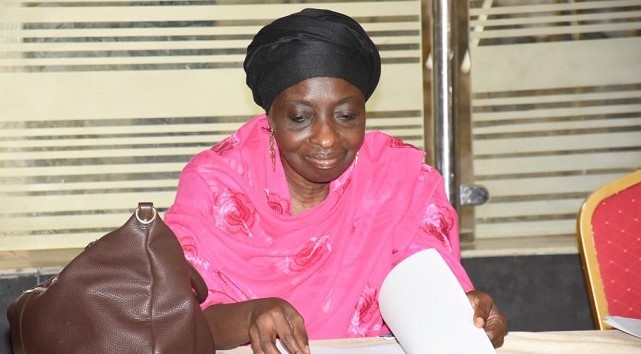The Economic Community of West African States (ECOWAS) has called for the strengthening of the capacity of disaster risk management agencies at local, states and national levels as well as other stakeholders in disaster response.

Dr Siga Jagne, ECOWAS Commissioner for Social Affairs and Gender, made the call at a three-day capacity building workshop organised for National Emergency Management Agency (NEMA) staff and other stakeholders.
The workshop, which began on Tuesday, December 1, 2020 in Abuja, was organised by NEMA in collaboration with ECOWAS commission and the World Bank.
The workshop is tagged: “Integrating Climate Change and COVID-19 Vulnerability Assessment and Adaptation Planning for Disaster Risk Management in Nigeria.”
Jagne said that the challenges posed by the climate change and COVID-19 had significantly undermined development and sustainability in the West African sub region.
She said that the ECOWAS commission was committed to developing and implementing programmes that would strengthen disaster risk reduction coordination, planning and policy advisory.
“It is, therefore, necessary that for the implementation and adaptation of actions, the capacity of disaster risk management agencies at the local, states and national levels and other stakeholders be strengthened.
“Hence, there is a need to build capacity on the understanding of issues concerning COVID-19 and climate change awareness or relevance.
“Also on vulnerability assessment and adaptation planning as well as COVID-19 recovery need assessment for disaster risk reduction in Nigeria,” she said.
According to her, Nigeria, in particular, is one of the countries in the sub-region seriously affected by natural disasters, epidemics and human-induced calamities.
“Nigeria experiences hydrometeorological events such as floods, windstorms, drought, coastal erosions, gully erosions amongst others.
“A combination of these events has led to huge economic losses and unavoidably deaths,” she said.
Speaking, Retired Air Vice Marshal Muhammadu Muhammed, Director-General, NEMA, said that climate change had added to the problems of environmental degradation and rapid unplanned urban growth.
He said that the situation had further reduced communities’ abilities to cope with existing levels of weather-related hazards, as increased drought in some regions would lead to land degradation, reduced crop yield among others.
The director-general said that it was important for disaster managers to evolve from the traditional ways of handling disasters and quickly adopt new ways to reduce hazards.
“The impacts of climate change and COVID-19 cut across all known boundaries, spatial or geographical, economic, political technological or social and cultural.
“Developed and developing nations are not immune to these adverse effects.
“The risk and dynamics of COVID-19 pandemic and climate change vulnerability have given us the warning that we have to quickly adapt to the new situation or we suffer the devastating consequences,” he said.
The event featured representatives from the Ministry of Humanitarian Affairs, Disaster Management and Social Development, NEMA, the European Union, World Bank, ECOWAS and other stakeholders.
By Ruth Oketunde
